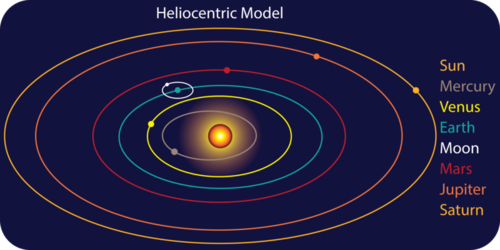| Botticelli's representation of Roman Goddess Venus |
Polish Astronomer Nicolai Copernicus was hugely influential in how people see the solar system. For 2000 years, Aristotle and Ptolemy's view that Earth was at the center of the universe was the Western ideal. Copernicus' heliocentric model in the 16th century during the European Renaissance gave rise to our modern view that the sun is at the center and is revolved around by the planets, with the sun's gravity keeping planets within their orbits.
Nanotechnology and Space merge in a number of ways, one of which involves Buckyballs in space. "Sudbury Buckyballs" (buckyballs are soccer-ball-like molecules with 60 C atoms) with "extra-terrestrial origin" came nearly 2 billion years ago and arrived on Earth, near Ontario, completely intact. Evidence like this has been showing that comets and meteorites likely helped to create life on Earth because they supplied important organic compounds as they bombarded our home planet.
Works Cited
"The Copernican Model: A Sun-Centered Solar System." The Copernican Model: A Sun-Centered
SolarSystem. N.p., n.d. Web. 01 June 2015. <http://csep10.phys.utk.edu/astr161/lect/retrograde/copernican.html>.
"Study of the Solar System." Encyclopedia Britannica Online. Encyclopedia Britannica, n.d. Web. 01 June 2015. <http://www.britannica.com/EBchecked/topic/40047/astronomy/257779/Study-of-the-solar-system>.
"How the PlanetsGot Their Names." How the Planets Got Their Names. N.p., n.d. Web. 01 June 2015. <http://rome.mrdonn.org/romangods/planets.html>.


No comments:
Post a Comment